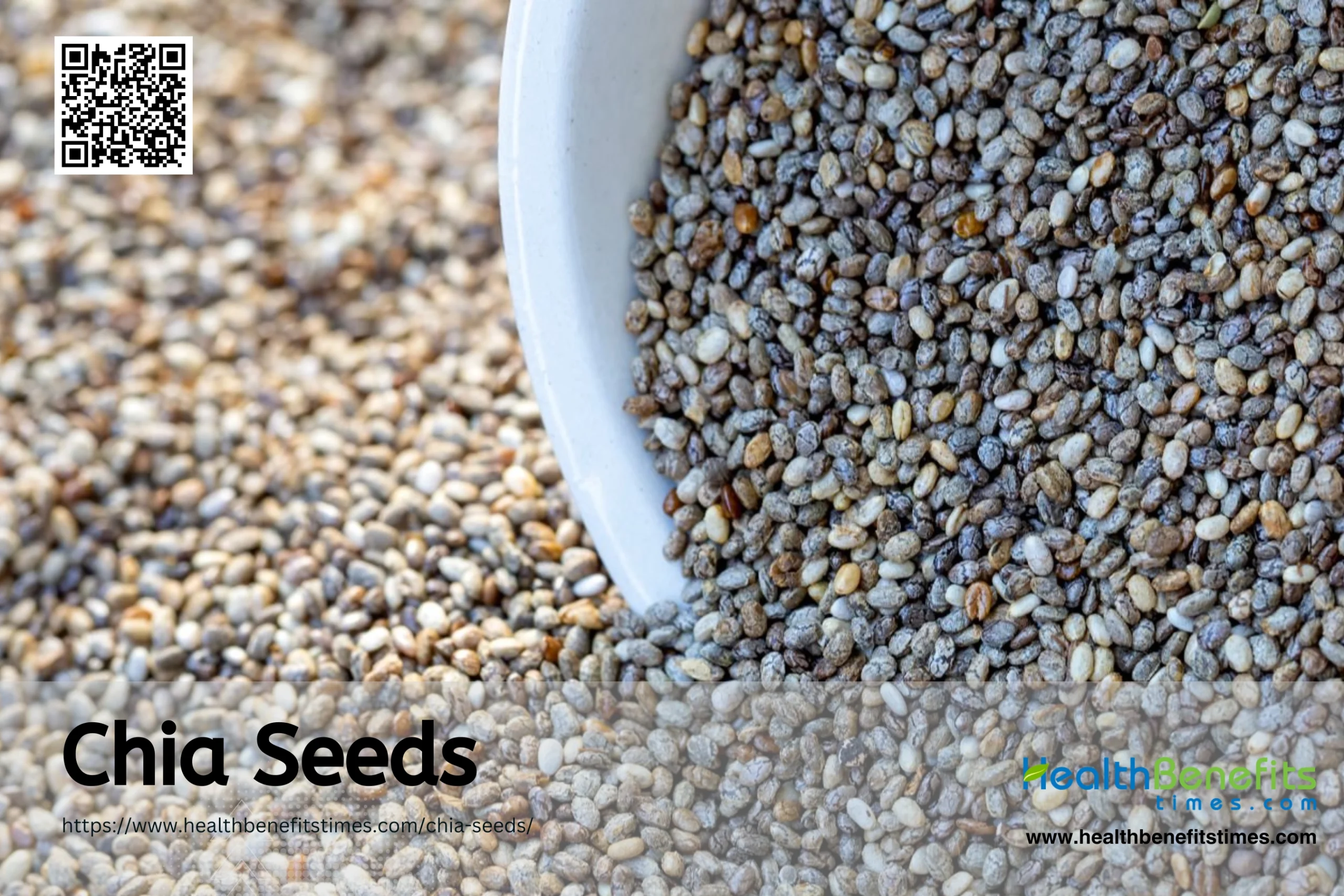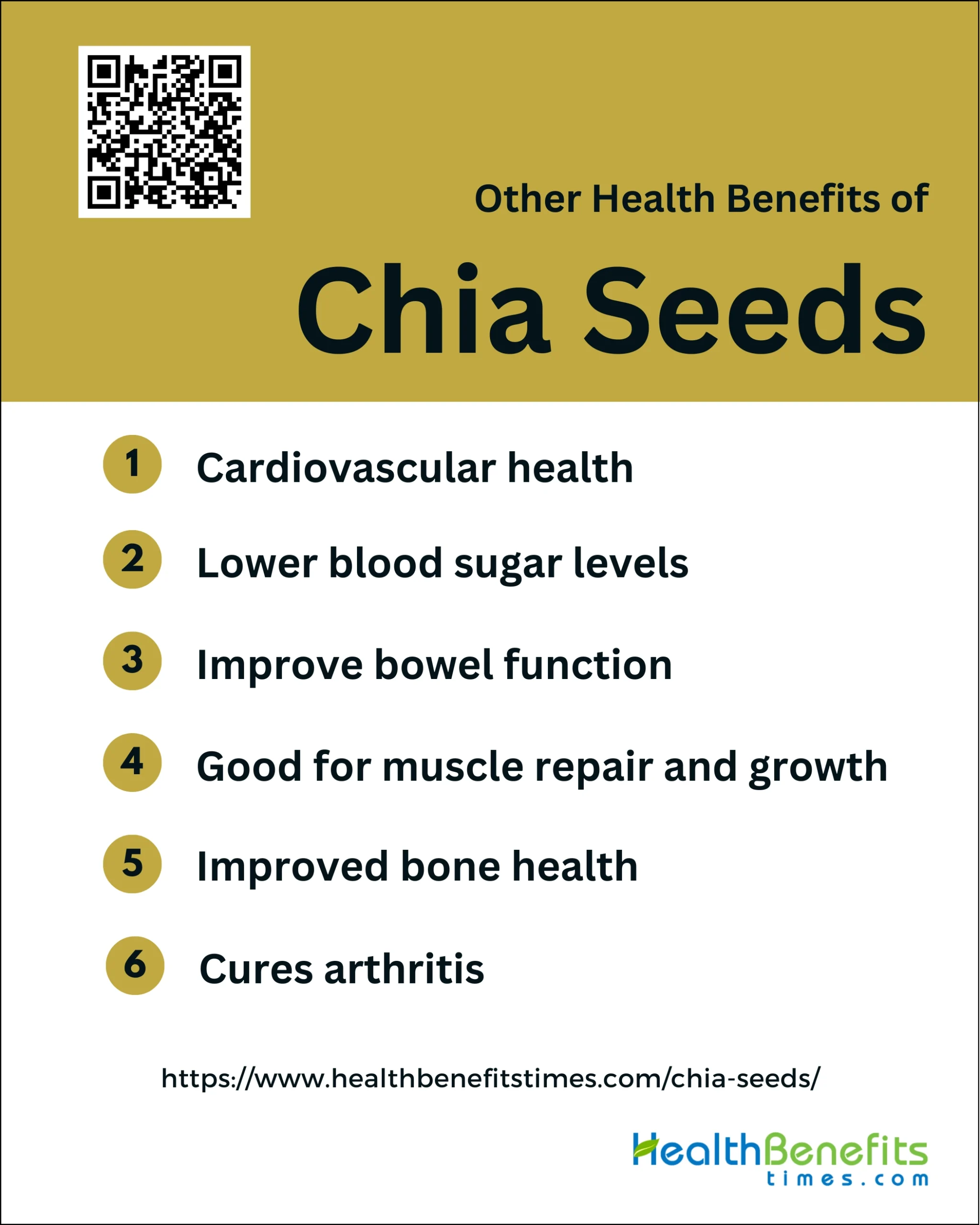 What are chia seeds?
What are chia seeds?
Chia seeds come from the Salvia hispanica plant, a flowering plant in the mint family found in central and southern Mexico. These seeds are oval and grayish with black and white spots, measuring about 2 millimeters in diameter. When chia seeds are soaked, they can absorb up to 12 times their weight in liquid, forming a gel-like texture due to a coating they develop. They are packed with omega-3 fatty acids, dietary fiber, protein, and essential minerals like iron, calcium, magnesium, and zinc. Because of their nutritional value, chia seeds have become a popular and healthy addition to various foods and drinks.
Nutritional values of chia seeds
Chia seeds are highly nutritious and pack a powerful nutritional punch in a small serving. A 1-ounce (28g) serving of chia seeds contains approximately 138 calories, 4.7g of protein, 8.7g of fat (with 5g being the beneficial omega-3 alpha-linolenic acid), 11.9g of carbohydrates, and an impressive 9.8g of fiber. They are also an excellent source of several essential minerals, providing 14% of the Daily Value (DV) for calcium, 12% of the DV for iron, 23% of the DV for magnesium, 34% of the DV for manganese, 20% of the DV for phosphorus, 28% of the DV for selenium, and 12% of the DV for zinc. Additionally, chia seeds contain notable amounts of antioxidants and are a good source of vitamins B1 (thiamine) and B3 (niacin), providing 15% and 16% of the DV, respectively.
Do Chia Seeds Aid in Weight Loss?
Yes, chia seeds can aid in weight loss, but they are not a magic solution on their own. Here are the key ways chia seeds may support weight loss efforts:
- High in Fiber: Chia seeds are an excellent source of dietary fiber, with around 10 grams of fiber per ounce (28 grams). This fiber can promote feelings of fullness and reduce overall calorie intake.
- Protein Content: Despite their small size, chia seeds contain a decent amount of protein (around 5 grams per ounce), which can also contribute to feelings of satiety and potentially support weight management.
- Low in Calories: With only about 138 calories per ounce, chia seeds are a low-calorie, nutrient-dense food that can be incorporated into a calorie-controlled diet.
- Absorb Water: When soaked in liquid, chia seeds can absorb up to 12 times their weight, forming a gel-like substance that may further promote feelings of fullness and reduce appetite.
- Omega-3 Fatty Acids: Chia seeds are rich in omega-3 alpha-linolenic acid (ALA), which may help reduce inflammation and support metabolic health, potentially aiding weight loss efforts.
Other Health Benefits of Chia Seeds
Listed here is a list of the key health benefits of chia seeds:
1. Cardiovascular health
Chia seeds have caught a lot of attention due to their possible benefits for heart health. These tiny seeds are packed with alpha-linolenic acid (ALA), a crucial omega-3 fatty acid that can help improve your cholesterol levels and reduce inflammation, which are key for a healthy heart. Research indicates that adding chia seeds to your diet might lower your blood pressure and enhance how your body responds to insulin, both essential for managing heart disease risks. Moreover, chia seeds contain antioxidants like chlorogenic and caffeic acids, which can further promote heart health by lessening oxidative stress. While there are some mixed results in studies, overall, the evidence suggests that including chia seeds in your meals could be good for your heart. However, more research is necessary to fully grasp the extent of their impact.
2. Lower blood sugar levels
Chia seeds have proven to be beneficial in reducing blood sugar levels. Studies have shown that consuming chia seeds can effectively lower blood glucose levels after meals. Research indicates that higher chia seed intake leads to a notable decrease in post-meal blood sugar levels. In adults with type 2 diabetes, adding chia seeds to their diet improved glycemic control by lowering fasting blood glucose levels. A study comparing chia and flax seeds revealed that chia seeds can lower blood sugar levels and slow down the release of glucose into the bloodstream. Moreover, experiments on rats have demonstrated that chia seed extract can significantly decrease blood glucose levels, suggesting its potential as a functional food for managing high blood sugar. These findings highlight the promise of chia seeds as a dietary approach to help control and reduce blood sugar levels in individuals with diabetes and other metabolic issues.
3. Improve bowel function
Chia seeds can significantly improve bowel function in various ways. The high fiber content in chia seeds, especially soluble fiber, plays a vital role in boosting intestinal health. Research shows that consuming chia seeds can increase the thickness of intestinal muscle layers and crypt size, indicating better intestinal structure and function. Moreover, extracts from chia seeds can enhance the villus surface area, villus length, and the number of goblet cells in the intestine, which are crucial for maintaining a healthy intestinal lining and improving nutrient absorption. Additionally, chia seeds help alleviate constipation symptoms by increasing stool moisture and improving the expression of tight junction proteins, strengthening the intestinal barrier and enhancing gut function. These findings suggest that adding chia seeds to your diet can lead to significant enhancements in bowel function and overall intestinal health.
4. Good for muscle repair and growth
Chia seeds are a great choice to support muscle repair and growth, especially for those on a vegetarian or vegan diet. These tiny seeds are full of plant-based protein, including all nine essential amino acids needed for building and recovering muscles. Each ounce of chia seeds has about 5 grams of protein, making them a powerful source of high-quality protein to help your muscles grow and mend after working out. Moreover, chia seeds are rich in magnesium and zinc, two minerals that are crucial for muscle function and recovery. Magnesium helps control muscle contractions and relaxation, while zinc aids in protein synthesis and cell growth, both vital for developing and preserving lean muscle mass.
5. Improved bone health
Chia seeds can significantly boost bone health thanks to their nutrient-packed profile. Studies on animals have revealed that including chia seeds in long-term diets can enhance bone mineral content (BMC) and bone mineral density (BMD). For example, research conducted on Sprague-Dawley rats found that a diet with 10% chia seeds resulted in a noticeable BMC increase in the upper part of the left shinbone after 13 months, compared to a group without chia seeds. Besides, chia seeds are a great source of calcium, essential for strong bones. While one study observed slightly lower calcium absorption in rats fed chia seeds, the overall advantages of eating chia include reduced inflammation and improved lipid levels, indirectly supporting bone health by lowering markers that can impact bone maintenance. Additionally, chia seeds are packed with omega-3 fatty acids, like α-linolenic acid, associated with various health perks, such as anti-inflammatory properties that can contribute to better bone health. So, adding chia seeds to your meals can be a smart move to boost bone health through different pathways.
6. Cures arthritis
Chia seeds have shown great potential in easing arthritis symptoms because they have anti-inflammatory properties. Studies indicate that chia seed oil and mucilage can help reduce inflammation and oxidative stress in both obese and non-obese rats with arthritis, leading to less paw swelling and better lipid profiles. Researchers have also discovered that chia seed oil-based nanogels containing resveratrol can improve arthritic symptoms in rats by balancing key inflammatory mediators like TNF-α, IL-6, IL-1β, and COX-2, thus boosting local therapeutic effects. The high levels of polyunsaturated fatty acids, especially α-linolenic acid, in chia seeds play a role in their anti-inflammatory effects, which are valuable for managing rheumatoid arthritis. Furthermore, extracts from chia seeds have been found to enhance markers linked to rheumatoid arthritis, including antioxidant enzymes and inflammatory cytokines, affirming their shield against arthritis-induced harm. In conclusion, adding chia seeds to your diet can be a natural and effective way to alleviate arthritis symptoms through their potent anti-inflammatory and antioxidant properties.
How to use chia seeds for weight loss?
Here are the steps to effectively use chia seeds for weight loss:
- Soak 1-2 tablespoons of chia seeds in a glass of water or milk for 15-20 minutes. This allows the seeds to absorb the liquid and form a gel-like substance.
- Drink the soaked chia seed gel, preferably in the morning on an empty stomach. The gel-like texture helps promote feelings of fullness and can reduce appetite and calorie intake throughout the day.
- Sprinkle soaked chia seeds over salads, yogurt, oatmeal, or blend them into smoothies. This increases the fiber and protein content of your meals, further enhancing satiety.
- Prepare chia seed pudding by mixing soaked chia seeds with milk or plant-based milk, adding fruits, nuts, or spices for flavor. Enjoy it as a nutritious snack or dessert.
- Use chia seeds as an egg substitute in baked goods like muffins or bread. The gel-like texture of soaked chia seeds can replace eggs in recipes.
- Drink plenty of water or other fluids when consuming chia seeds to prevent potential digestive issues or blockages.
- Remember that chia seeds alone are not a magic solution for weight loss. Incorporate them into a balanced, calorie-controlled diet and regular exercise routine for best results.

